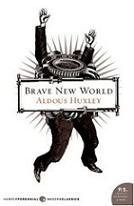 It is all too easy for science fiction readers to forget that after all these years, despite all the blockbusters and bestsellers, despite the genre’s shaping impact on every facet of our larger culture, the object of their affection has never really gone mainstream.
It is all too easy for science fiction readers to forget that after all these years, despite all the blockbusters and bestsellers, despite the genre’s shaping impact on every facet of our larger culture, the object of their affection has never really gone mainstream.includes bits about the nonsense that people who should know better say about the genre.
One of the choicer comments on which Mr. Langford reports in the July 2007 issue is from Christopher Hitchens, who, in his review of The Life of Kingsley Amis by Zachary Leader for the May Atlantic Monthly, observes that "The great drawback of sci-fi is the dearth of sex from which it compels itself to suffer."
 Ursula K. Le Guin, Robert A. Heinlein, Brian Aldiss, Philip Jose Farmer, Philip K. Dick, Harlan Ellison, and of course, the star of that same issue of Interzone, Michael Moorcock himself, as well as innumerable others, would all be astonished to learn that sexuality was so absent from their writing.
Ursula K. Le Guin, Robert A. Heinlein, Brian Aldiss, Philip Jose Farmer, Philip K. Dick, Harlan Ellison, and of course, the star of that same issue of Interzone, Michael Moorcock himself, as well as innumerable others, would all be astonished to learn that sexuality was so absent from their writing.One may give Hitchens the benefit of the doubt and say that perhaps he was not thinking of written science fiction, which gets so little attention, but rather the media science fiction which is the face of the genre for almost everyone who does not actually read the stuff. However, sex has not been absent here either these last few decades, even on broadcast television—far from it, as viewers of the later incarnations of Star Trek, The X-Files, Babylon 5, Lexx, Firefly, and any number of other such shows are well aware. Indeed, when I was recently interviewing the creative team behind Lexx, a show particularly well-known for its sexual content, the genre’s "dearth of sex" never came up once. (It just never occurred to me to ask, and they never brought it up, and maybe that’s a reminder that I should do a better job of keeping in mind how "others see us.")
Indeed they did. When most of those works are mentioned at all, however, it is usually by historians of science fiction, who find them interesting oddities. They never became part of a tradition, the pulps of the early twentieth century a separate and rather marginalized starting point.
 In Britain, perhaps less inclined to "pigeon-holing" as Moorcock suggests in his interview, science fiction was less cut off from the literary mainstream, particularly from highbrow literature with its irony and experimentation. H.G. Wells, for example, was a prominent historian and social theorist who wrote more recognizably literary work (even if this part of his output is generally unread today), and counted among his friends figures like Henry James. The same goes for writers like Orwell and Huxley, which may be one reason why the science fiction novels most likely to turn up on mainstream critics’ best-of-the-twentieth-century lists are typically Orwell’s Animal Farm and 1984, and Huxley’s Brave New World. (The only American author with comparable mainstream standing, judging by the best-of-century lists from a few years ago and the contents of the anthologies used in college survey courses, would seem to be Kurt Vonnegut.) This may also be why the self-consciously literary New Wave, despite important American precursors like Ray Bradbury and Alfred Bester (whose Tiger! Tiger!—better known today as The Stars My Destination—Moorcock credits with first getting him interested in science-fiction), and notable participants like Harlan Ellison and Ursula K. Le Guin, was led by British editors and writers: Brian Aldiss, J.G. Ballard, and of course, Moorcock as editor at New Worlds.
In Britain, perhaps less inclined to "pigeon-holing" as Moorcock suggests in his interview, science fiction was less cut off from the literary mainstream, particularly from highbrow literature with its irony and experimentation. H.G. Wells, for example, was a prominent historian and social theorist who wrote more recognizably literary work (even if this part of his output is generally unread today), and counted among his friends figures like Henry James. The same goes for writers like Orwell and Huxley, which may be one reason why the science fiction novels most likely to turn up on mainstream critics’ best-of-the-twentieth-century lists are typically Orwell’s Animal Farm and 1984, and Huxley’s Brave New World. (The only American author with comparable mainstream standing, judging by the best-of-century lists from a few years ago and the contents of the anthologies used in college survey courses, would seem to be Kurt Vonnegut.) This may also be why the self-consciously literary New Wave, despite important American precursors like Ray Bradbury and Alfred Bester (whose Tiger! Tiger!—better known today as The Stars My Destination—Moorcock credits with first getting him interested in science-fiction), and notable participants like Harlan Ellison and Ursula K. Le Guin, was led by British editors and writers: Brian Aldiss, J.G. Ballard, and of course, Moorcock as editor at New Worlds.
Nor has this changed since Stapledon’s time, as Moorcock notes. The reality is that "[Thomas] Pynchon . . . wasn’t doing anything quite as interesting as the New Worlds writers in the 1970s and yet he got a lot more attention—and continues to." P.D. James‘s "Children of Men creaked with generic conventions of the most boring kind, whereas Aldiss’s Greybeard, written on the same theme some forty years ago and avoiding all the conventions isn’t even in the shops."
Naturally, you won’t be seeing him on the Oprah Book Club anytime soon.